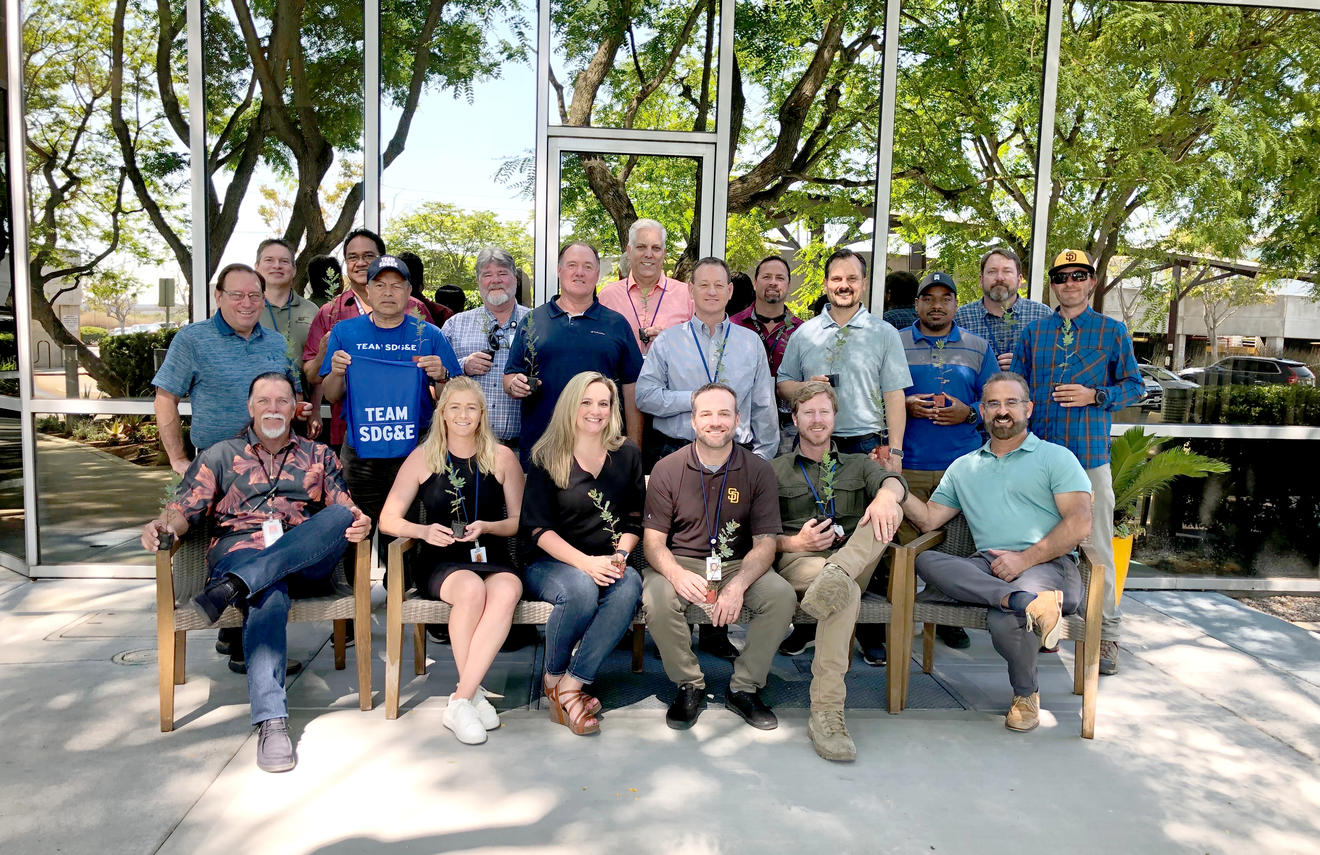From Trees to Food: A Closer Look at How Our Vegetation Management Team Works to Reduce Waste and Wildfire Risk
In our first living sustainability strategy, we set a goal to divert 100% of organic green waste, especially green waste related to vegetation management, from entering landfills by 2030. We are committed to a circular economy — one that is regenerative by design and aims to gradually separate growth from the consumption of finite resources and reduce waste. Our sustainability goals help us build safer, stronger, and healthier communities.
Did you know that our Vegetation Management team trims approximately 180,000 trees annually? Tree trimming is important for reducing wildfire ignition risk and energy reliability while also producing green waste. Recycling the organic material allows us to help reduce emissions, save landfill space and create healthier communities. But green waste diversion is only half the story! Turning green waste into products that can support both our soil and climate is what makes this solution part of a circular economy. Circular economy refers to creating and consuming products more than once, so that as one thing is consumed, the waste can be turned into something new, and on and on forever. Circular economy helps responsibly use Earth’s resources without running out.
Since 2014, our team has worked with local businesses like San Pasqual Valley Soils (SPVS) to divert green waste – like grass, shrubs, branches, tree trimmings, etc. – while supporting local businesses and healthy soils. SPVS is situated on the City of San Diego’s agricultural preserve affiliated with the last remaining commercial dairy farm in San Diego County, Konyn Dairy / KD Farms. This local business keeps waste out of landfills by turning green waste into a bio-resource. SPVS uses windrow composting techniques to develop a variety of products including compost, mulches, topsoil, and custom soil blends.
SPVS compost is used for environmental programming, stormwater infrastructure, farms, and even animal exhibits at the San Diego Zoo Safari Park. A portion of the nutrient-rich compost made from tree trimmings is also applied locally as a soil amendment (think carbon farming) at KD Farms to produce forage to feed the dairy cows, thereby helping convert what started as green waste into a valuable milk product for human consumption. This is an excellent example of the circular economy at work. In addition to adding carbon back into the soil through compost applications, KD Farms is committed to climate-friendly farming practices, with a 1,000 linear feet irrigation line powered by solar energy. SDG&E Vegetation Management’s partnership with SPVS has been a win-win collaboration.
“Our tree trimming operations function at a higher level with SPVS by helping to drive down the costs of transporting green waste material, and in generating byproducts that help meet our company’s sustainability goals," says our Wildfire Mitigation Program Manager Michael Daleo.
Building Healthy Soils in Our Region
Compost is the foundational feedstock to build healthy soils. Craig Kolodge Ph.D., SPVS’s Business Development & Sustainability Manager, explains, “with the biannual addition of compost produced locally at San Pasqual Valley Soils, we have increased Soil Organic Matter (SOM) in our forage production fields from less than 1%, typical of native soils in our region, to 4-5%. With each 1% increase in SOM, soil scientists estimate that we can increase the water holding capacity of our soils by an additional 16,500 gals/acre-foot. The increase in seasonal soil moisture retention helps us to survive long periods of drought by lowering both our irrigation and energy requirements necessary to grow forage crops needed to support our dairy operation.”
Other benefits from compost application include soil stability, soil fertility, reduction in stormwater runoff, and atmospheric carbon sequestration. These benefits are key to building resilience and better adapting to extreme weather patterns and climate change.
Diverting green waste and re-purposing it through sound environmental management practices, supports healthy soils, reduces emissions, and helps provide cows with lunch. Get involved by diverting your green waste, composting, or buying products from SPVS.
Learn More About San Pasqual Valley Soils
SPVS invites the public to learn more about their farm and supplies a free product giveaway on the second Saturday of each month. Check out their Instagram @spvsoils or website for more details on the monthly compost product giveaways.
